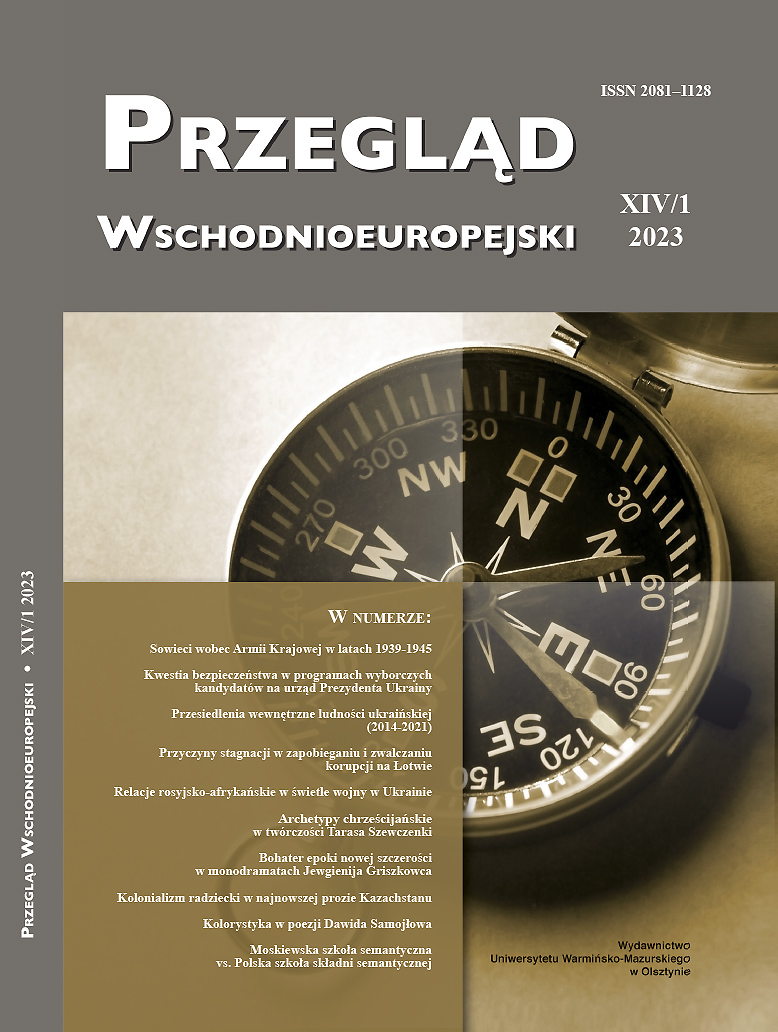THE SOVIET COLONIALISM: CONSCIOUS AND UNCONSCIOUS CODING OF MEANINGS IN THE THE WELL NOVEL BY ABISH KEKILBAYEV
THE SOVIET COLONIALISM: CONSCIOUS AND UNCONSCIOUS CODING OF MEANINGS IN THE THE WELL NOVEL BY ABISH KEKILBAYEV
Author(s): Oral ArukenovaSubject(s): Language and Literature Studies, Applied Linguistics, Sociology of Literature
Published by: Wydawnictwo Uniwersytetu Warmińsko-Mazurskiego w Olsztynie
Keywords: Soviet colonialism; sublimation; birth trauma; Tengrism; nomadism; mythology
Summary/Abstract: Abish Kekilbayev’s story The Well was first published in 1978 in the Kazakh language book Belaya Aruana. The story is one of the most striking works of Kazakh literature of the Soviet period and it has been translated into many languages of the world. It has been the subject of research by literary and cultural critics in Kazakhstan, Russia, Germany, the United States, Bulgaria and other countries, and it is still of interest for analysis and interpretation. In 2018, a feature film based on the novel was produced in Kazakhstan. This article examines the work as an example of coding during the ideological censorship of the Soviets and, from a psychoanalytical perspective, as a derivative of birth trauma. During the Soviet colonial period, ethnic myths acquired particular significance for Central Asian writers; they became a natural extension of the traditional folk epic and a way out of the situation: by engaging the mythical consciousness, they could encode meanings, presenting them in the form of socialist realism
Journal: Przegląd Wschodnioeuropejski
- Issue Year: XIV/2023
- Issue No: 1
- Page Range: 265-274
- Page Count: 10
- Language: English

